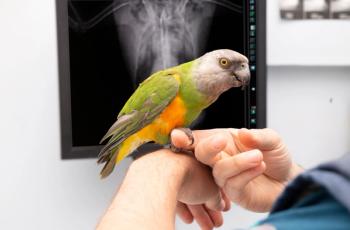
- dvm360 October 2020
- Volume 51
- Issue 10
The Dilemma: All in the family?
The pros and cons of hiring relatives at your veterinary practice.
Reed Animal Hospital is what you might call “a family affair.” James Reed Sr, DVM, started the practice in 1953, and his son, Jim Reed Jr, DVM, joined in 1982. In 2012, Susan Reed, DVM, became the third generation of Reed veterinarians to work at the clinic. Today, the hospital has a staff of 51, with a few Reeds still in the mix, including the practice owner.
At a veterinary hospital, the importance of progressive medicine and customer service is topped only by the demand for capable, honest, and diligent staff members. Most practice owners and managers will tell you that finding staff members with these qualities isn’t easy. It requires networking, staff outreach, and attractive employment packages. This difficulty is why some practices are willing to hire multiple people from the same family.
Recently, the clinic’s administrative team was debating the merits of hiring multiple family members. On the plus side, they reasoned, the current staff member can provide the owner or hiring manager with greater insight into the history and character of the potential new employee, and the potential employee can get a better sense of the realistic hospital working environment. But there may be a downside as well.
Reed Animal Hospital recently hired a mother, son, and daughter from the same family. During the COVID-19 pandemic, increased workplace stress ignited some friction. The mother felt that her son wasn’t being trained adequately to advance within the practice. The employee himself had expressed no such concern. His mother was so irate about the matter that she spoke to her supervisor and even lobbied fellow staff members on her son’s behalf.
The supervising administrator scheduled individual meetings with both the mother and her son to defuse the situation. The administrator explained to the mother that she was happy with the performance of both her and her son, but it was not her place to lobby for her son’s advancement. Every staff member is an individual who could speak for themselves, the administrator explained, adding that the employee had stirred up drama in an already challenging practice environment. The mother said she didn’t intend to upset her coworkers, but she firmly believed that her son’s abilities were being underutilized.
When the administrator met with the employee’s son, he expressed vastly different sentiments. In fact, he appeared to be a satisfied employee with no workplace issues.
The administrator told the mother that she appreciated her expressing her concerns, but that she would have to follow the practice’s protocols for voicing issues moving forward. The mother said she understood, but that it was difficult for her to keep silent. The administrator hoped she would not have to lose this employee but knew there was no place for drama in an already stressful clinic.
How would you have handled this dilemma? Have you or would you hire relatives as part of your workforce? We would like to know. Email your thoughts to dvm360news@mmhgroup.com.
Dr. Rosenberg’s response
The secret to any successful veterinary practice is great team chemistry. Veterinarians are extremely capable and veterinary technicians are the backbone of successful practices. Charismatic receptionists round out the trifecta. To maintain and perpetuate good chemistry, it can be very tempting to reach out to friends and family of current employees as a reservoir for new staff. However, as this dilemma makes clear, doing so can be a double-edged sword. That’s why many practices opt to avoid hiring family members. However, this policy may deny very talented potential staff members the chance to be part of your team.
I believe the answer comes down to risk taking. Talented employees are valuable assets. When one comes your way, regardless of their staff affiliation, hire them. There may be some future issues to sort out, but isn’t that true in every part of our lives?
Dr. Rosenberg is director of the Voorhees Veterinary Center in Voorhees, New Jersey. Although many of the scenarios Dr. Rosenberg describes in his column are based on real-life events, the veterinary practices, doctors and employees described are fictional
Articles in this issue
about 5 years ago
The power of “thank you”about 5 years ago
Leadership and the veterinary industry: Where are the women?about 5 years ago
Surgery pearls: Removing linear foreign bodies in dogsabout 5 years ago
Shelter Snapshot: Infectious respiratory disease in animal sheltersabout 5 years ago
The ABCs of veterinary dentistry: When waiting is wishful thinkingabout 5 years ago
Rare surgical procedures give man and dog a new lease on lifeabout 5 years ago
Prevalence, comorbidity, and breed differences for anxious dogsabout 5 years ago
Study links bone loss to proximal sesamoid fractures in racehorsesabout 5 years ago
TGen launches Vidium Animal Healthabout 5 years ago
AAHA releases third preventive care publicationNewsletter
From exam room tips to practice management insights, get trusted veterinary news delivered straight to your inbox—subscribe to dvm360.




